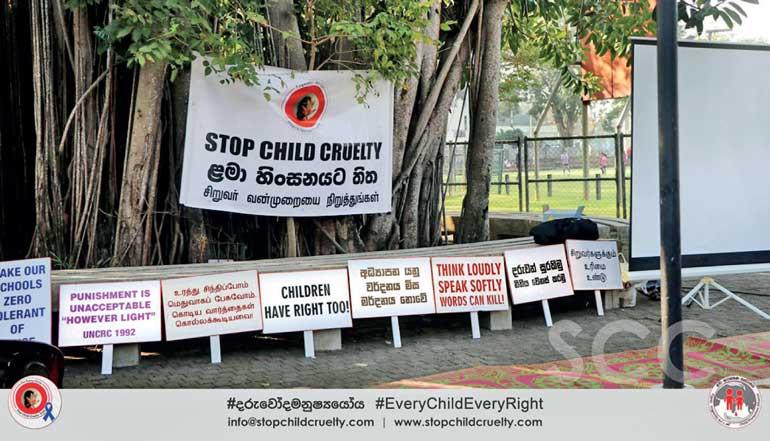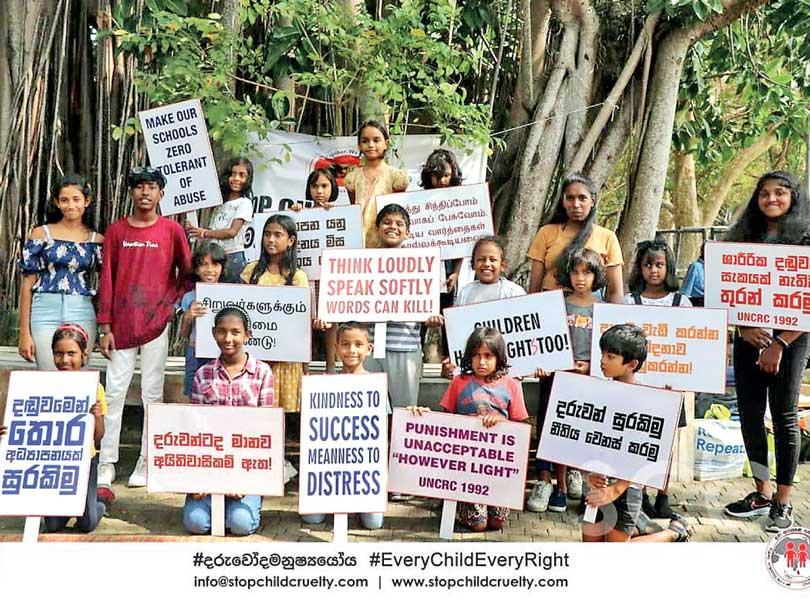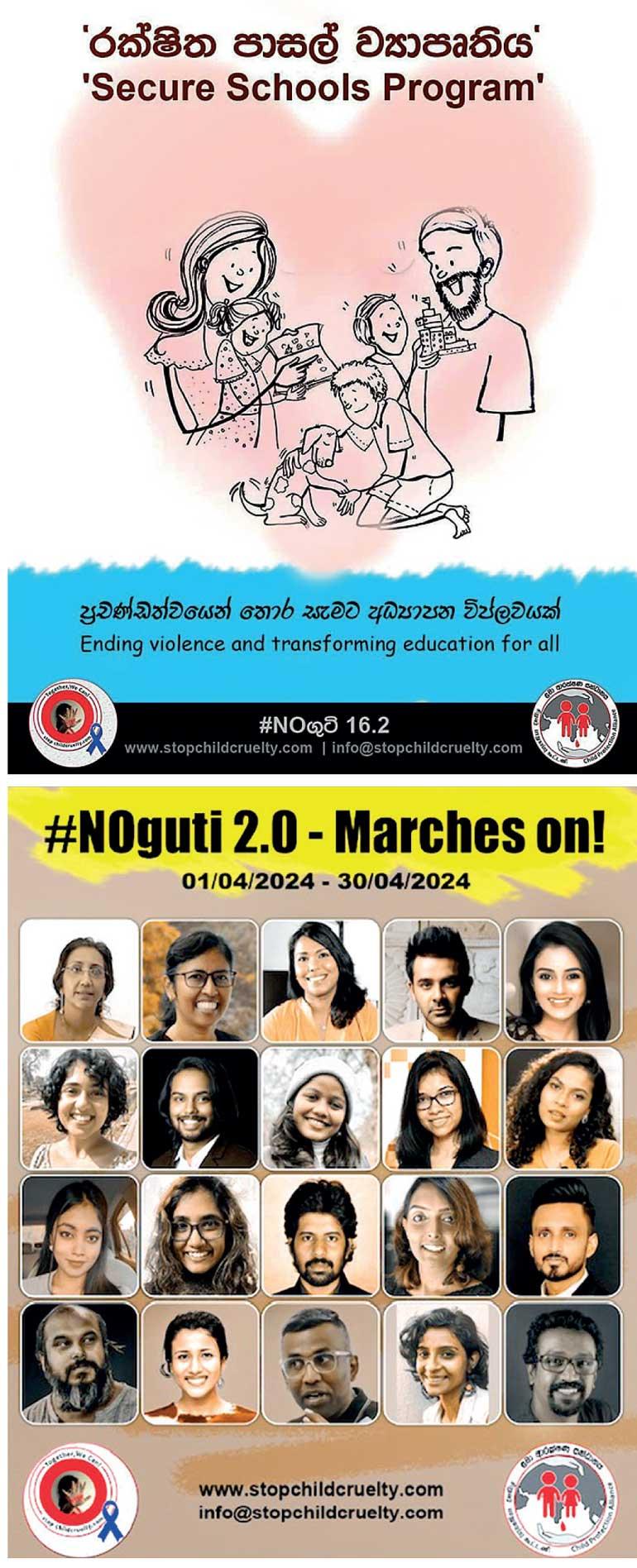30 Mar 2024 - {{hitsCtrl.values.hits}}


 As the world prepares to observe the International Day to End Corporal Punishment on April 30th, 2024, #NOguti 2.0 takes center stage in a global effort to combat physical abuse, which affects over 1.3 billion children annually. Despite Sri Lanka's commitment to ending violence against children, as highlighted by its designation as the only South Asian Path-finding country for Sustainable Development Goal 16.2 in 2017, there remains a glaring oversight by the Government of Sri Lanka and the National Child Protection Authority (NCPA) regarding the significance of this day. This is underscored by the unfortunate collapse of the National Plan to End Violence Against Children (NPEVAC) in 2018.
As the world prepares to observe the International Day to End Corporal Punishment on April 30th, 2024, #NOguti 2.0 takes center stage in a global effort to combat physical abuse, which affects over 1.3 billion children annually. Despite Sri Lanka's commitment to ending violence against children, as highlighted by its designation as the only South Asian Path-finding country for Sustainable Development Goal 16.2 in 2017, there remains a glaring oversight by the Government of Sri Lanka and the National Child Protection Authority (NCPA) regarding the significance of this day. This is underscored by the unfortunate collapse of the National Plan to End Violence Against Children (NPEVAC) in 2018.
#NOguti, originally launched two years ago with the aim of raising public awareness, now evolves into #NOguti 2.0, an intensive social media campaign running from April 1st to April 30th. This campaign focuses on advocating for the implementation of proposed penal code reforms to unequivocally ban corporal punishment. Stop Child Cruelty Trust (SCCT) and Sri Lanka’s first Child Protection Alliance (CPA), along with the support of 20 advocates and influencers, spearhead this monumental effort. The primary objective is to pressure the government into submitting proposed Penal Code Reforms aimed at banning corporal punishment without reservation.
The urgency of this campaign is evident in the alarming rise of child cruelty and physical abuse cases reported to the NCPA, which have tripled over the past decade. A 2017 study by the NCPA on disciplinary methods practiced in Sri Lankan schools revealed disturbing statistics, with 80% of students experiencing corporal punishment, 53% subjected to physical abuse, and 72.5% enduring psychological aggression within a single school term. Shockingly, 61.9% of teachers admitted to administering corporal punishment. Despite these findings, none of the 18 recommendations made by the NCPA have been implemented by relevant authorities to date, resulting in grave implications for the physical and mental health of children, as well as straining education, health, law enforcement, justice, and social services.
Dr. Tush Wickramanayaka, Chairperson of SCCT and Co-convener of CPA, highlighted significant milestones in the fight against corporal punishment. These include a historic Supreme Court verdict in February 2021, which referenced the UN Convention on the Rights of the Child (UNCRC) and recommended penal code reforms to abolish sections legitimizing corporal punishment. Additionally, amendments to the Children and Young Persons Act were enacted on January 1st, 2024, increasing the age limit of a child to 18 and repealing section 76(1), which permitted corporal punishment.
Despite these advancements, challenges persist, with a draft proposal for a cabinet memorandum to prohibit corporal punishment languishing without submission since September 15th, 2023. Dr. Wickramanayaka expressed disappointment in the Minister of Justice's delay in submitting the proposal, citing #NOguti 2.0 as a collective effort to overcome this final hurdle and pave the way for a future free from violence for our children.

26 Dec 2024 3 hours ago
26 Dec 2024 4 hours ago
26 Dec 2024 5 hours ago
26 Dec 2024 6 hours ago
26 Dec 2024 7 hours ago